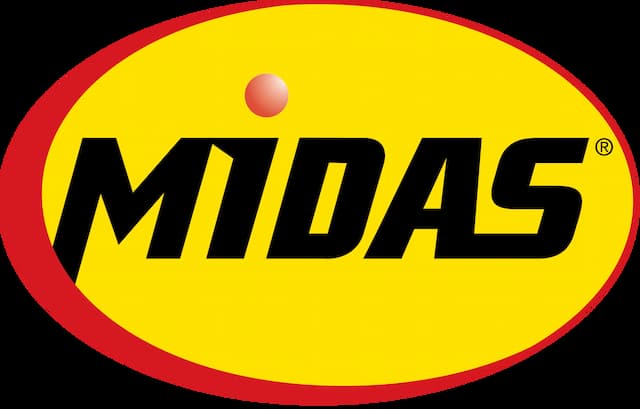Definitions starting with O
Odometer
The odometer displays the total number of kilometers the vehicle has travelled and is usually located on the dashboard. It is illegal to adjust your odometer or to display an incorrect odometer reading to a potential buyer.
Oil
Oil reduces friction in the engine and other mechanical components in your car by lubricating all of the moving parts. It helps cool the engine by transferring heat away from moving parts. Engine oil also prevents corrosion and cleans the engine. Oil should be changed regularly to keep your engine operating safely and efficiently.
Oil Change
An oil change involves replacing old dirty oil with fresh new oil, which lubricates the engine more effectively. This will renew the efficiency of the engine of your car.
Oil Filter
The oil filter removes contaminants before they can be circulated through the car engine and cause damage. The oil filter must be replaced regularly to keep the engine clean from debris.
Oil Pump
The oil pump ensures that oil is distributed to all the parts of your car’s engine that need lubrication. Common indicators for a faulty oil pump are low oil pressure, engine noises, or your engine running hot.
Overdrive
Overdrive allows you to reduce strain on your engine and improve fuel economy by maintaining a steady speed and decreasing your RPM.
Overhead Camshaft
The overhead camshaft configuration offers improved vehicle performance, and provides easier access for mechanics to work on. In this configuration, the camshaft is situated “overhead,” or above the combustion chambers.
Overhead Valve
The overhead valve configuration places the camshaft inside the cylinder block and moves the rocker arms with pushrods, opening and closing the valve.
Overheating
Overheating happens when your car engine is not properly cooled. This can be a result of insufficient antifreeze from a leak or a faulty hose. If your car overheats, you should immediately pull over, turn off your car, and let it cool down.
Overload Shocks
Overload shocks allow your car to carry heavy loads by providing extra spring and cushioning so your car’s weight doesn’t cause damage to the struts.
Oversteer
Oversteer happens when your rear tyres lose traction when turning, allowing the rear of your car to skid out. This can be very dangerous. Make sure you enter corners at a safe and responsible speed, especially in wet conditions.
Oxidation
Oxidation is an interaction between oxygen and another material. One common side-effect is rust, causing damage to paint and metal. You can apply a sealant to prevent this process from spreading, as oxidation can affect your car’s appearance and parts.
Oxygen Sensor
The oxygen sensor ensures your engine is running efficiently by measuring the oxygen in the exhaust. This determines the engine’s air-fuel ratio. The oxygen sensor is located in the exhaust pipe and is a part of your car’s emissions control system.
Table of content
Policies & Resources
Table of content
Dictionary
Become an expert on all things motoring! This dictionary of terms and phrases will help you understand exactly what things are, what gets done and why.
Definitions starting with O
Odometer
The odometer displays the total number of kilometers the vehicle has travelled and is usually located on the dashboard. It is illegal to adjust your odometer or to display an incorrect odometer reading to a potential buyer.
Oil
Oil reduces friction in the engine and other mechanical components in your car by lubricating all of the moving parts. It helps cool the engine by transferring heat away from moving parts. Engine oil also prevents corrosion and cleans the engine. Oil should be changed regularly to keep your engine operating safely and efficiently.
Oil Change
An oil change involves replacing old dirty oil with fresh new oil, which lubricates the engine more effectively. This will renew the efficiency of the engine of your car.
Oil Filter
The oil filter removes contaminants before they can be circulated through the car engine and cause damage. The oil filter must be replaced regularly to keep the engine clean from debris.
Oil Pump
The oil pump ensures that oil is distributed to all the parts of your car’s engine that need lubrication. Common indicators for a faulty oil pump are low oil pressure, engine noises, or your engine running hot.
Overdrive
Overdrive allows you to reduce strain on your engine and improve fuel economy by maintaining a steady speed and decreasing your RPM.
Overhead Camshaft
The overhead camshaft configuration offers improved vehicle performance, and provides easier access for mechanics to work on. In this configuration, the camshaft is situated “overhead,” or above the combustion chambers.
Overhead Valve
The overhead valve configuration places the camshaft inside the cylinder block and moves the rocker arms with pushrods, opening and closing the valve.
Overheating
Overheating happens when your car engine is not properly cooled. This can be a result of insufficient antifreeze from a leak or a faulty hose. If your car overheats, you should immediately pull over, turn off your car, and let it cool down.
Overload Shocks
Overload shocks allow your car to carry heavy loads by providing extra spring and cushioning so your car’s weight doesn’t cause damage to the struts.
Oversteer
Oversteer happens when your rear tyres lose traction when turning, allowing the rear of your car to skid out. This can be very dangerous. Make sure you enter corners at a safe and responsible speed, especially in wet conditions.
Oxidation
Oxidation is an interaction between oxygen and another material. One common side-effect is rust, causing damage to paint and metal. You can apply a sealant to prevent this process from spreading, as oxidation can affect your car’s appearance and parts.
Oxygen Sensor
The oxygen sensor ensures your engine is running efficiently by measuring the oxygen in the exhaust. This determines the engine’s air-fuel ratio. The oxygen sensor is located in the exhaust pipe and is a part of your car’s emissions control system.
